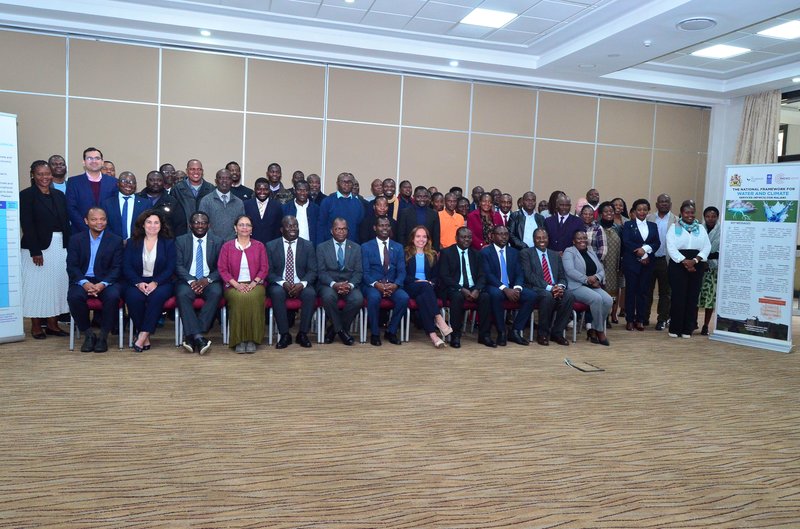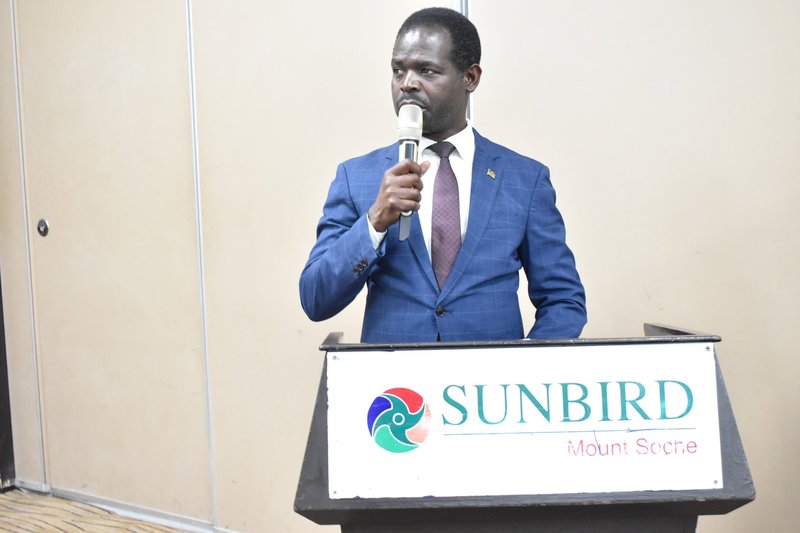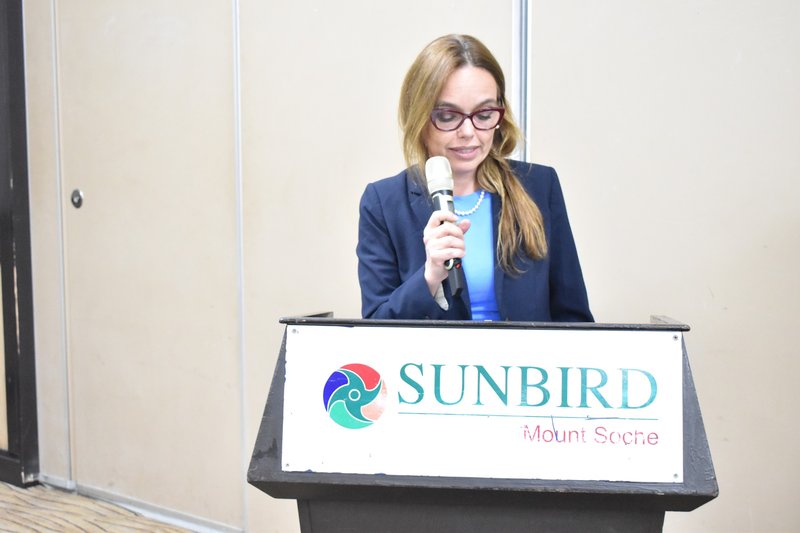Malawi Moves to Strengthen Climate Services Through Policy and Stakeholder Engagement
By Alick Chibanthowa

Participants posing for a group photo.
The Principal Secretary in the Ministry of Natural Resources and Climate Change, Dr Yusuf Mkungula, has commended the ongoing support of development partners in enhancing climate services in Malawi. Speaking on Monday in Blantyre during the opening of a two day stakeholder workshop hosted by the Ministry of Natural Resources and Climate Change, Dr Mkungula emphasised that such support has significantly contributed to the transformation of DCCMS's capacity and service delivery.
The workshop, organised in collaboration with key partners, the World Meteorological Organisation and the World Bank, is focused on strengthening the legislative and policy framework for climate services through the development of the Meteorological Policy and the Malawi Meteorological Bill. It also serves as a coordination and stocktaking platform under the Climate Risk and Early Warning Systems (CREWS) Malawi project, with particular attention to strategic planning, risk financing, and the delivery of climate services across critical socio-economic sectors.

Dr Yusuf Mkungula delivering the opening speech.
Dr Mkungula acknowledged the contributions of partners including the World Bank and the World Meteorological Organization (WMO), which have supported the Department of Climate Change and Meteorological Services through infrastructure, expertise and technical assistance. "The World Bank, for example, has assisted Malawi with a weather radar, while the WMO has supported capacity building efforts, including expert training and the hosting of the National Climate Outlook Forum," he said. He further highlighted that Malawi is set to become the first country in Africa to pilot artificial intelligence forecasting, marking a significant milestone in meteorological innovation.
However, Dr Mkungula pointed out that there are still areas that require attention, particularly the improvement of infrastructure at district level, the adoption of advanced technologies, and the recruitment and training of skilled personnel. "The ongoing development of our strategic plan, the new Meteorological Policy, and the implementation of a robust Quality Management System are all designed to fundamentally transform the department's service delivery," he added.
The workshop convenes government ministries and departments, development partners and technical experts to enhance coordination, improve synergies, and align activities. Key topics under discussion include the alignment of the DCCMS Strategic Plan, development of sector-specific climate service concept notes, the National Framework on Water and Climate Services, and the integration of the Early Warnings for All initiative.
Catalina Marulanda, World Bank Group Practice Manager for Urban, Resilience and Land for East and Southern Africa, addressed participants, noting that the impacts of climate change on health, agriculture and economic development are accelerating. "There is a growing need for better preparedness, improved responses and greater resilience. To achieve this, we must strengthen forecasting capacity and promote collaboration at all levels," she said.

Catalina Marulanda.
The outcomes of the workshop are expected to contribute to more effective, inclusive and sustainable climate risk management in Malawi.

